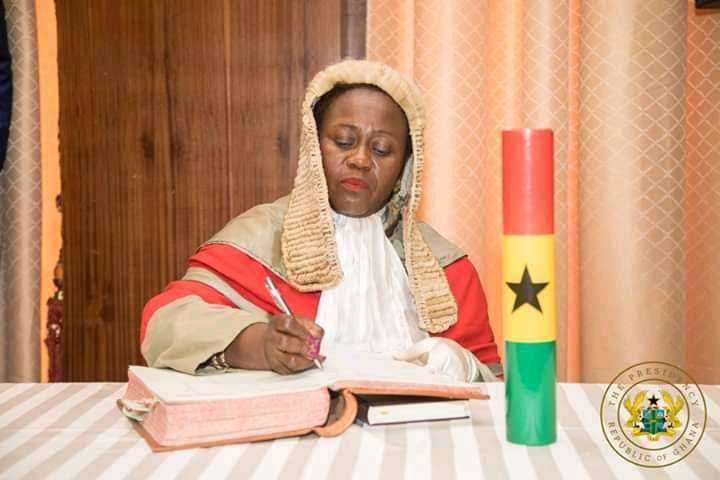This blog is managed by the content creator and not GhanaWeb, its affiliates, or employees. Advertising on this blog requires a minimum of GH₵50 a week. Contact the blog owner with any queries.
A new nationwide poll by Global InfoAnalytics has revealed that a majority of Ghanaians support the removal of Chief Justice Gertrude Araba Esaaba Sackey Torkornoo.
The survey, conducted between April 7 and April 16, 2025, sampled 2,545 registered voters across all 16 regions of Ghana, uncovering deep public sentiment on the judiciary’s leadership.
According to the findings, 52% of respondents supported the Chief Justice’s removal, while 20% opposed it. Another 18% were neutral, and 10% had no opinion on the matter.
Conditional Support Based on Misconduct
When participants who initially opposed or were neutral/no opinion were asked whether they would support her removal if evidence of legal misconduct emerged, 30% said yes, 35% remained opposed, 19% stayed neutral, and 16% maintained no opinion.
Regional Differences in Sentiment
The data showed significant regional variation in attitudes:
Greater Accra Region: 58% supported removal, 16% opposed.
Central Region: 51% supported, 16% opposed.
Ahafo and Upper East: Majority did not support removal, marking them as outliers in the national trend.
Education and Political Affiliation Key Influencers
Educational attainment also influenced voter opinion:
JHS-educated voters: 57% supported, 17% opposed.
SHS-educated: 50% supported, 21% opposed.
Tertiary-educated: 54% supported, 18% opposed.
No formal education: 37% supported, 30% opposed.
Political loyalty was another clear predictor:
John Mahama 2024 voters: 79% supported removal, 4% opposed.
Dr. Bawumia supporters: 17% supported removal, 47% opposed.
Other candidates’ supporters: 38% supported, 19% opposed, 23% neutral.
A Barometer of Judicial Confidence?
The poll reflects complex voter attitudes toward judicial accountability and signals growing demands for transparency in public office. With support for the Chief Justice’s removal cutting across educational and regional lines, the survey could shape national conversations about trust in the judiciary and leadership accountability.
It remains to be seen whether this public sentiment will lead to concrete actions or reforms within Ghana’s judicial system.
